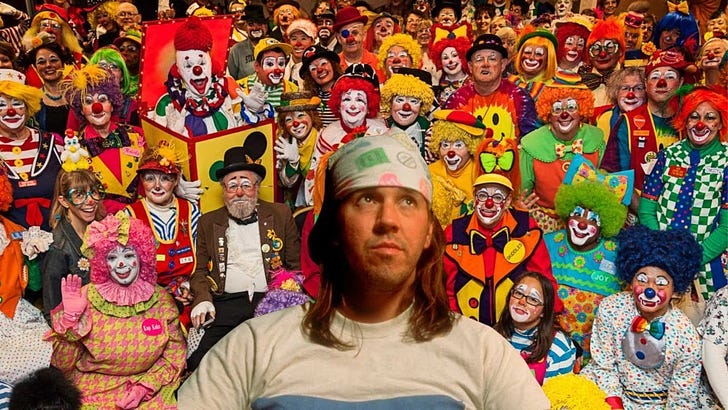I am currently putting most of my effort into building my twitter account back to 10k, which drove a lot of traffic to this page, however twitter also offers some options that substack doesn't, such as live interactive “spaces” in which audience members can talk with the host, offering insights and asking questions. I have one coming up tonight, Jan 26, at 9 pm eastern, on “Overcoming Nihilism: Dostoyevsky vs. Nietzsche” (linked below) that I would love to see any and all of my subscribers attend. The special guest will be Athenian Stranger, whom you may remember from our episode Heidegger and the Terminator.
Dostoyevsky portrays grappling with nihilism in the psychological torment of Raskolnikov, in Crime and Punishment, and Ivan, in the Brothers Karamzov. Both are atheist utilitarians, and both are led to crippling neurosis, portrayed in agonizing detail with their inner monologues, gruesome actions (in the case of Raskolnikov) and mental breakdowns. Dostoyevsky offers a solution in both books, in Crime and Punishment when Raskolnikov finds religion in the arms of Sonia, and Alyosha gives his final address on sincerity.
However, are these really avenues available to us to overcome nihilism? Perhaps, yes. But is it solution for society? For Western Civilization? Hasn’t religion already failed us, as a people, as we descend into madness, debauchery, justification of the worst degeneracy, gluttony, technological entrancement, and worse? What can Dostoyevsky offer us in the face of these things? Well, I feel he knows he can’t offer much, based on the epilogue of Crime and Punishment. Nietzsche has a solution, but it is a very narrow path indeed: that of Zarathustra, the man of overcoming.
This path too is not open to everyone, and many have failed in their striving. We will define several terms important to this discussion, such as nihilism itself, as well as the concept of the death of God and the overman, or the invaluater of values. Is this a better path forward than Dostoyevksys? As I’ve argued in one of my earliest essays, it’s the only path forward, and it is not guaranteed for success.
Three figures we will discuss briefly who encountered this impasse were Yukio Mishima, who I wrote about here, David Foster Wallace, who I discuss in the video above at length in relation to the Brothers Karamazov, and Ernst Junger, a German veteran of both world war who wrote on these issues at length. We will also briefly mention Ride the Tiger, by Julius Evola which, while we won’t discuss at length, is absolutely worth your time if this topic interests you, for he examines many more examples of nihilism, including Nietzsche, the Dadaists, surrealists, situationists, Beats, and hippies.
Here is a link to the space, and I hope to see you there. I will continue to present content this way and encourage you to join, however I also have several exclusive podcast episodes recorded. These and past spaces will be releasing with regularity starting next week. Thank you.




